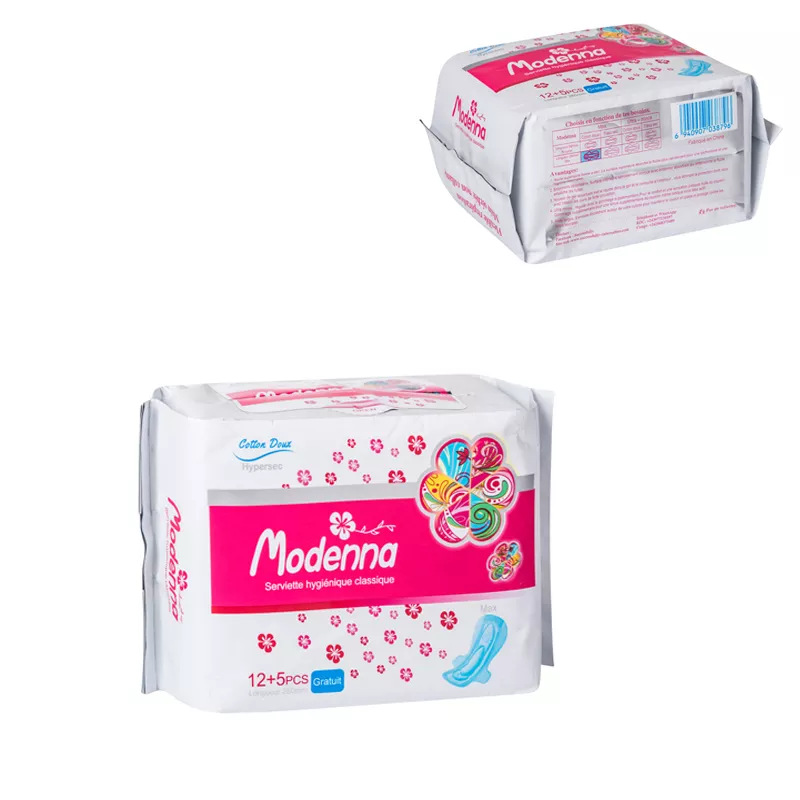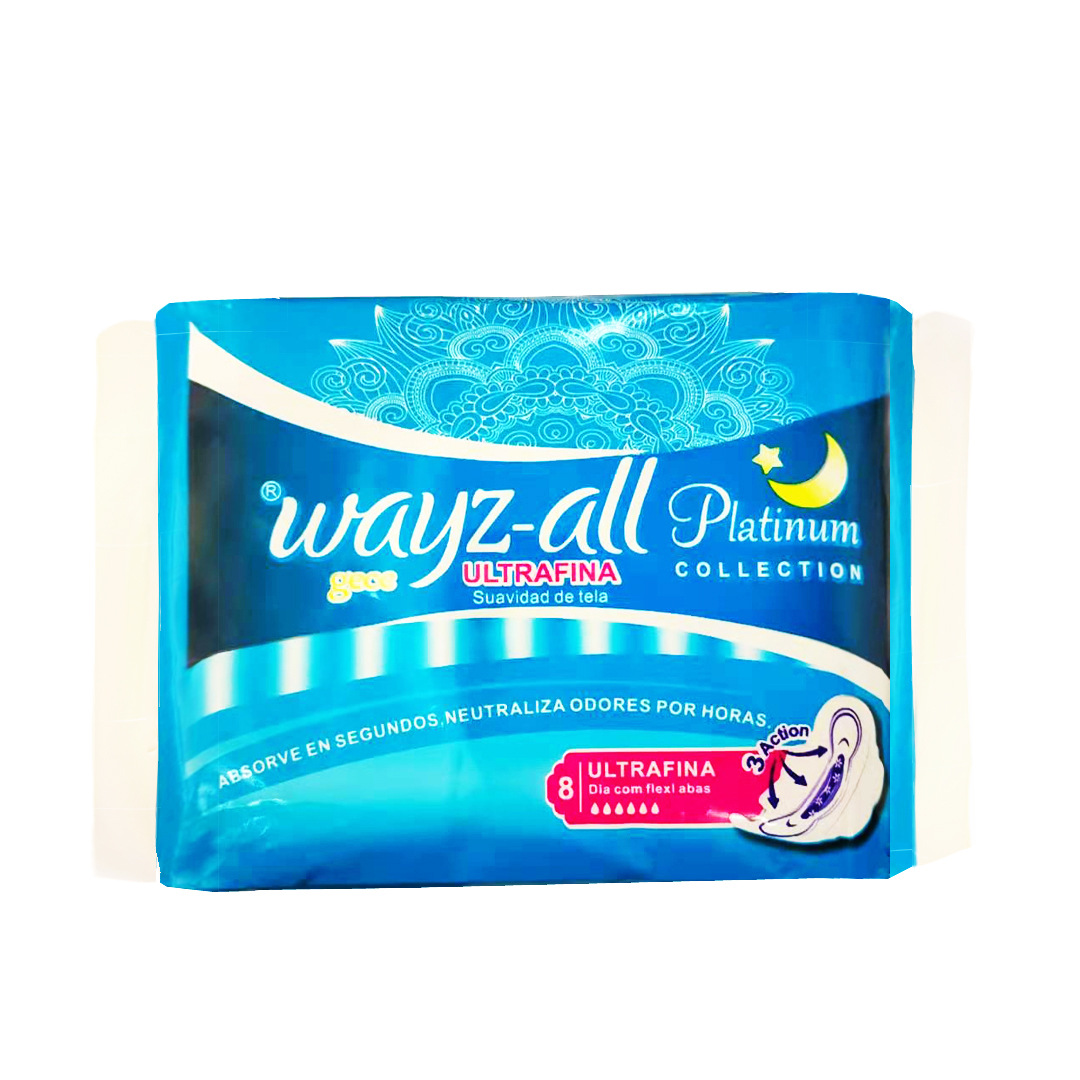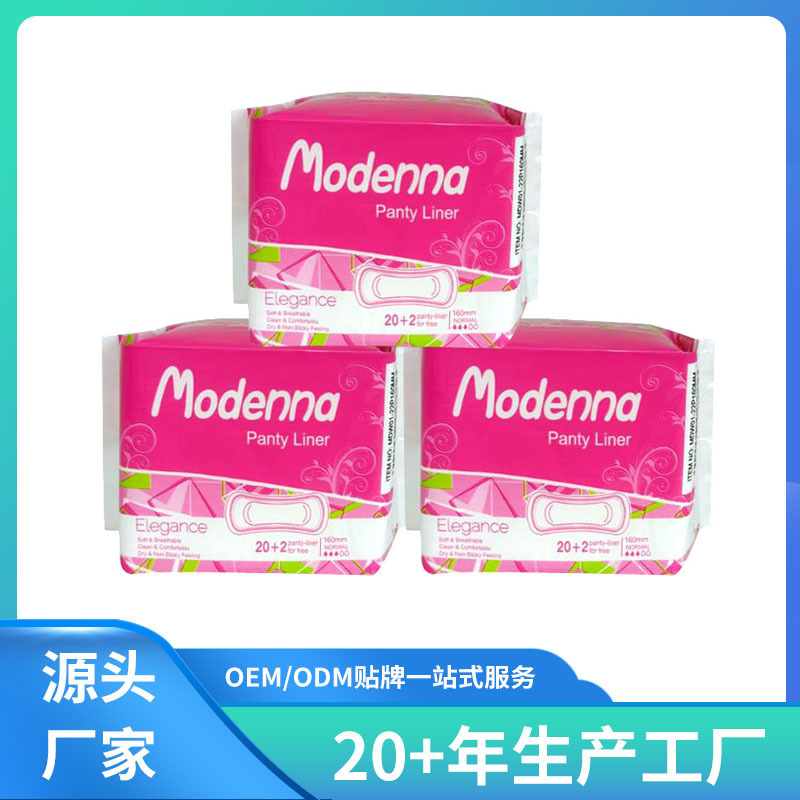Do Sanitary Napkins Cause Cancer? 10 Facts About Sanitary Napkins
In modern society, sanitary napkins are an essential product for every woman during her menstrual period. However, the question of whether sanitary pads can cause cancer often sparks heated discussions and widespread attention. So, are sanitary pads really safe? Before delving deeper into this issue, let's first take a look at the top ten facts related to sanitary napkins.
Ten facts about sanitary napkins
The history of sanitary napkins: The use of sanitary napkins can be traced back to the 19th century, initially by nurses. Modern disposable sanitary napkins were popularized in the 20th century. (Source: Healthline)
Material diversity: Many sanitary napkins are made of wood pulp, cotton, plastic, and other synthetic materials, and the composition of different brands may vary greatly. (Source: Mayo Clinic)
Easy to use: Disposable sanitary napkins are widely used due to their convenience, making them easier to carry and handle compared to traditional cloth towels. (Source: Verywell Health)
Market growth: The global sanitary napkin market is growing rapidly and is expected to reach nearly $30 billion by 2025. (Source: Statista)
Environmental impact: Many disposable sanitary napkins contain plastic, which can have a lasting impact on the environment. Each woman can use thousands of sanitary napkins in her lifetime. (Source: National Geographic)
Allergic reactions: Some women may experience allergic reactions to certain chemicals in sanitary pads, such as skin irritation or infection. (Source: American Academy of Dermatology)
Fragrance free products: More and more brands are launching fragrance free sanitary pads to avoid potential allergens. (Source: Consumer Reports)
Legal regulation: Different countries have different regulations on the production and composition of sanitary napkins to ensure product safety. (Source: FDA)
Tend to use natural materials: Consumers' increasing concern for environmental protection and health has driven the demand for organic and natural sanitary napkins. (Source: The Guardian)
The importance of personal choice: Every woman's body and needs are different, so choosing sanitary pads that are suitable for oneself is crucial. (Source: WebMD)

Ingredients of sanitary napkins
There are various types of sanitary napkins on the market today, with ingredients ranging from pure cotton to synthetic fibers. The core materials of most sanitary napkins are highly absorbent wood pulp and cotton, while the outer layer may use plastic to prevent leakage and improve comfort. Some brands also add spices and other chemicals to enhance the user experience. These ingredients have a direct impact on the absorption capacity, comfort, and odor control of the product.
For example, many sanitary napkins use a plastic film called "polyethylene" on their surface, which makes them softer and more comfortable, while also improving their leak proof performance. However, the use of this material has also raised environmental concerns as it takes a very long time to decompose in natural environments.
In addition, some sanitary napkins may contain antibacterial agents and other chemical additives designed to provide additional protection, but may also cause allergic reactions in some women. Therefore, when choosing sanitary napkins, it is very important to understand the ingredients of the product.
Current research status on cancer
At present, there is not much research on whether sanitary pads can cause cancer. Although some small-scale studies have suggested that the ingredients in sanitary napkins may pose certain health risks, the overall conclusion does not explicitly state a direct association between sanitary napkins and cancer. The attitude of the scientific community towards this issue remains cautious, emphasizing the need for more long-term and comprehensive research to validate these hypotheses.
For example, studies have shown that certain chemicals, such as dioxins, may be produced during the production of sanitary napkins, which are considered a potential carcinogen. However, these studies typically involve experimental results under specific conditions and cannot directly infer that the use of sanitary pads poses a direct threat to health.
Another study on female reproductive health showed that although some women may have sensitive reactions to certain ingredients, there is no evidence to suggest that the use of sanitary pads significantly increases the risk of cancer. Therefore, overall, professional organizations still consider sanitary napkins as a safe personal care product.
Harmful Substances in Sanitary Napkins
While the majority of sanitary napkins undergo rigorous testing and are considered safe, there are still some potential harmful substances that warrant attention. These components may include:
Dioxins: Dioxins are chemical compounds that can be produced during certain wood pulp manufacturing processes and are known to be harmful to human health, including potential carcinogenic effects. Although many brands claim their products do not contain harmful levels of dioxins, consumers should still pay close attention to product labeling.
Synthetic Materials: Many disposable sanitary napkins use synthetic materials such as polypropylene and polyethylene, which are not biodegradable and can impact the environment. Prolonged contact with certain synthetic materials may lead to skin irritation or allergic reactions.
Fragrances and Additives: To enhance user experience, some sanitary napkins include fragrances or other additives. These chemicals can not only cause skin allergies but may also have negative effects on women's reproductive health.
Pesticide Residues: In some cases, sanitary napkins made from non-organic cotton may retain pesticide residues, posing a risk for women with sensitive skin.
Heavy Metals: Some studies have found trace amounts of heavy metals, such as lead and cadmium, in certain sanitary napkins. Long-term exposure to these substances could harm health.
How to Choose Safe Sanitary Napkins
To ensure that the sanitary napkins you choose are safe and suitable for your needs, here are some suggestions:
Check the Ingredients: Carefully read the ingredient list on sanitary napkin packages, prioritizing those labeled “fragrance-free,” “additive-free,” and “chemical bleaching-free.”
Opt for Organic Cotton Products: If you're concerned about pesticide residues, consider choosing sanitary napkins made from organic cotton. These products typically do not use chemical pesticides or fertilizers and are generally safer.
Know the Brand Reputation: Select reputable brands and familiarize yourself with their manufacturing processes and quality control measures.
Pay Attention to Personal Comfort: Experiment with different brands to find the product that best suits your body. Some women might prefer cloth sanitary pads, which are reusable and environmentally friendly.
Consider Environmental Factors: If you're concerned about environmental pollution, you might want to explore alternatives like menstrual cups or washable cloth pads to reduce waste from disposable products.

Conclusion
Overall, while there are some potential risks associated with the use of sanitary napkins, scientific research has not definitively proven that they directly cause cancer. It is essential to remain vigilant about product ingredients and choose items that suit individual needs. As science progresses, further research will help us better understand the relationship between sanitary napkins and health.
In selecting personal care products, women should make informed decisions based on their health conditions, lifestyles, and environmental awareness. With this information, we hope to assist every woman in choosing safer and more suitable sanitary napkin products during menstruation, thereby promoting health.
Final Suggestions and Thoughts
Regular Health Checks: Even while using sanitary napkins, it’s important to schedule regular gynecological exams to ensure good health. If any unusual symptoms arise, seek medical attention promptly.
Education and Sharing: Consider sharing knowledge about sanitary napkins with female friends in daily life to collectively improve awareness and focus on women's health.
Maintain an Open Attitude: Discussions about sanitary napkins and other personal care products should be open, respecting diverse choices and viewpoints.
Participate in Social Discussions: Actively engage in conversations about women’s health, the safety of hygiene products, and environmental protection, contributing to efforts to amend relevant policies and regulations.
We hope this article provides valuable information, enabling every woman to have a healthier, safer, and more comfortable experience during her menstrual cycle.


